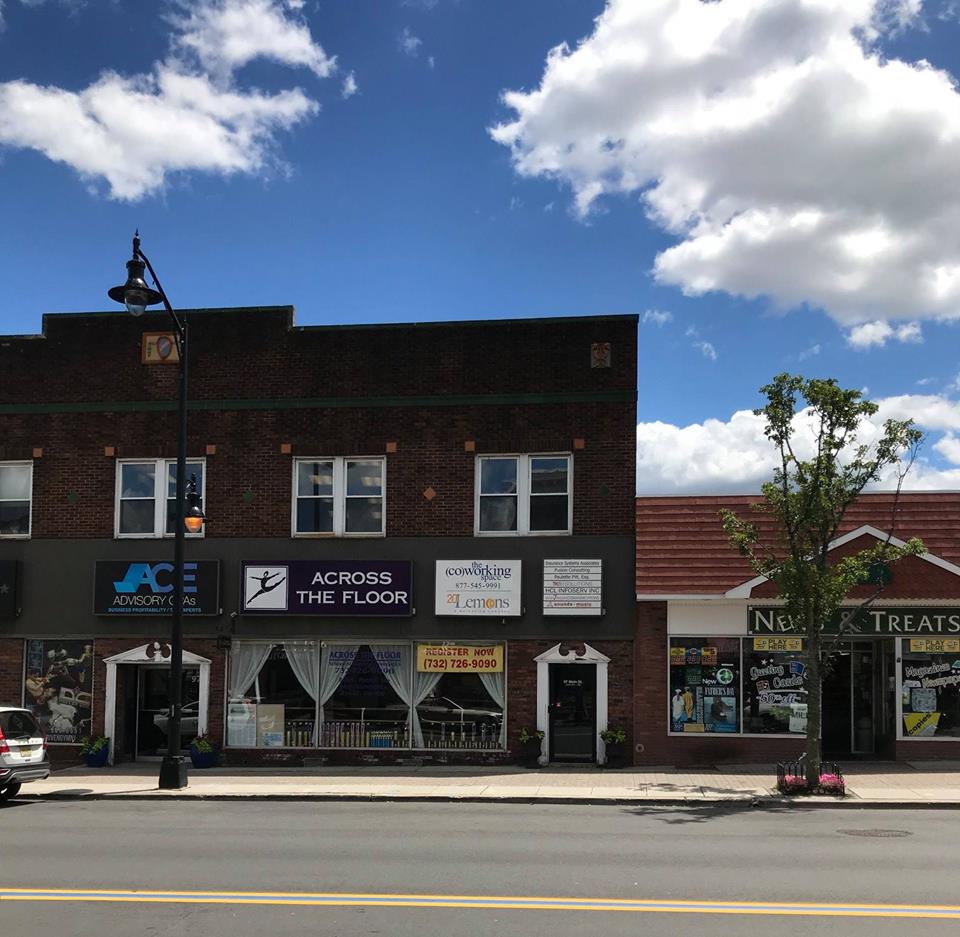Coworking in Suburbia
Just 10 years ago there was one coworking space in New Jersey. In 2019, there are 107, according to Liquidspace. While this may not hold a candle to the 165 spaces that operate in the Metro New York area, it is clear that coworking has leaked outside of the urban settings from whence it came.
The (co)working space is nestled on the second-floor of a mature, Main Street building in Woodbridge, NJ. Ten years ago, the small coworking space business owner, Noelle Stary wondered how the company would gain exposure throughout NJ and the Greater NYC area. However, it turned out the business did not need mass marketing. Instead, the flexible office gained clients in the local residents of Woodbridge and found customers in the surrounding small towns.
“In Jersey, every town has its favorite pizza place or local deli. I realized that the same will start to happen in the coworking industry and that each town will have its own style or location-specific coworking space based on the needs of people in that area,” said the owner of the (co)working space, Noelle Stary.
While real estate agents sell empty space, coworking is all about community. Most spaces have similar amenities—coffee, water, printing, 24/7 access are some that characterize the (co)working space in Woodbridge. However, community, connections, relationships, and personal growth are the standout factors that sell flexible workspaces. 20 Lemons, LLC is the marketing company that powers the (co)working space. The marketing strategists at 20 Lemons are constantly working to promote the community feel of the office space when establishing the brand throughout Woodbridge and the surrounding towns.

Some (co)working space community members
When a coworking space opens up in a small town (like the variety of small towns that make up NJ) this means a lot to the local community. What’s more, the resulting coworking spaces in small suburban towns are much different than that of those which open in cities like NYC or Philadelphia.
Suburban coworking spaces often open on bustling main streets so that people can work where they live and show the pride they have in their hometown. This suburban coworking push has opened doors for freelancers, business owners, remote workers, and startups to conduct business in their home zones.
For the (co)working space, the most notable members are those who work for companies in major metropolitan areas and have since traded in their city commutes for a membership at the shared office environment.
These same individuals usually have similar stories: with the advent of remote work, they were able to work from home more often. While working from home is convenient, the house setting can reveal distractions in the form of small kids, laundry, cleaning, you name it… Suburban coworking spaces are beginning to fill the need for a short commute to a more relaxed office environment. Most notably, the large businesses these members work for are beginning to front coworking costs as they’ve realized the benefits of the industry. The lack of commute reveals more time for work, money savings, time savings, and an overall improvement in quality of work/life balance.
The members of each town’s coworking space produce different needs—thus changing the type of service each space provides its members. As a result, the coworking industry is segmenting with each space that opens. For example, the (co)working space in Woodbridge has a variety of desk options that were born from member requests. The Woodbridge office sells memberships in the form of cubicle desks and open-style seating. The (co)working space also offers a variety of conference room sizes, phone booths for calls, and mail management services for businesses that need a NJ address.
The members of a suburban community characterize the resulting coworking space. This ultra-specific community comes together for after-work parties that meet the needs of members, and networking events that help to connect like-minded individuals. The “meeting of minds” that occurs in suburban coworking spaces are known to grow each member personally, improve local economies, and in some cases, help to conceive new business ideas.
Everyone from the local residents, to the small towns’ government has found coworking to improve community, stimulate financial wellness, and foster pride in towns that had once lost their residents to big-city offices. The (co)working space has helped to pioneer the local, NJ coworking scene and is planning efforts to license their (co)working space structure in neighboring towns. It will be interesting to see how coworking spaces change as they become more specific to the communities they serve. Welcome to coworking in suburbia.


